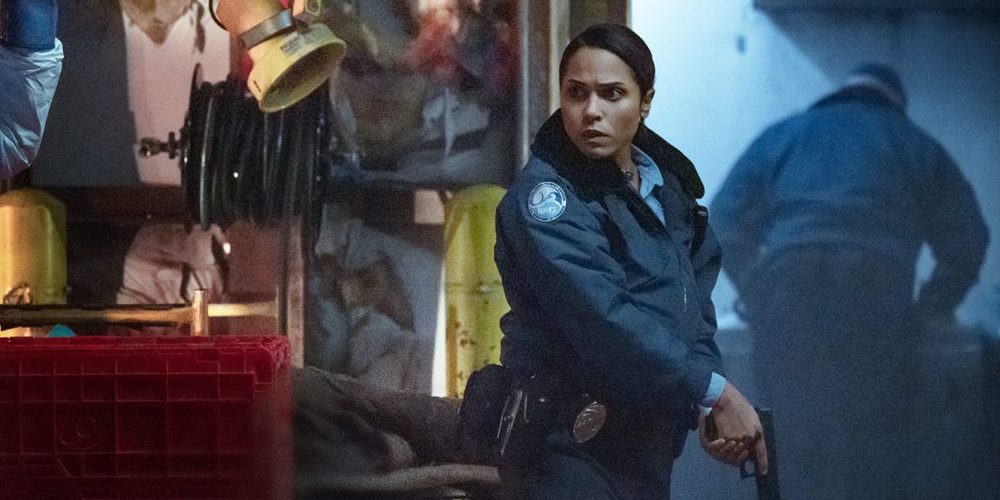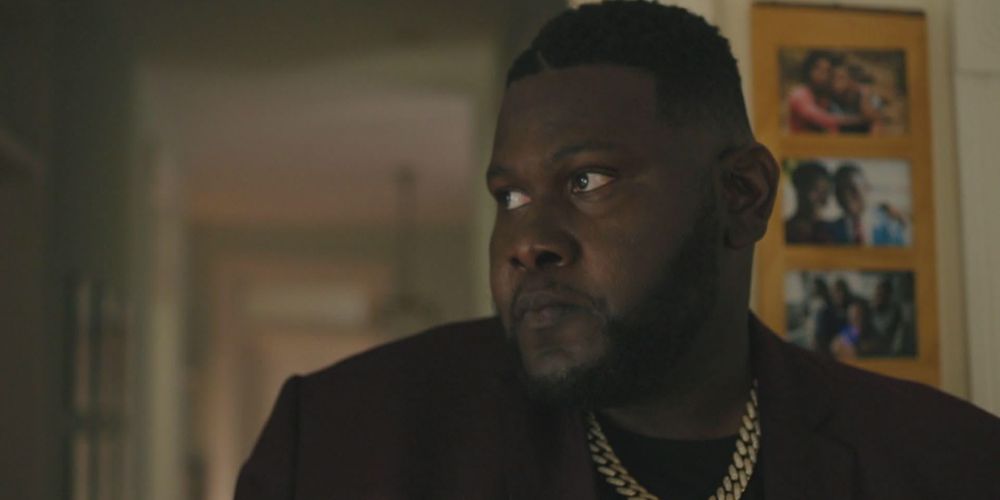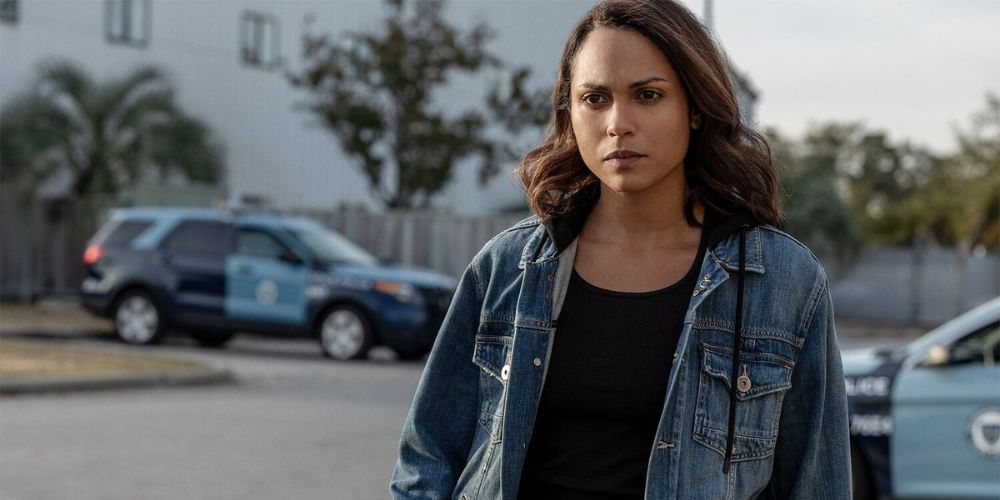Created by Rebecca Perry Cutter, Starz’s ‘Hightown’ is a crime drama series that starts off as a story about addiction and drug trafficking, but as the show progresses, it becomes evidently clear that it is about so much more. It chronicles the journey of Jackie Quiñones (Monica Raymund), an agent working in the National Marine Fisheries department in Cape Cod, Massachusetts. However, her life turns upside down when she discovers a woman’s dead body, which had been thrown away in the ocean. Now, she has taken responsibility for solving the crime and catching the culprit. Apart from focusing on the unlawful acts, the series doesn’t shy away from concentrating on Quiñones and how she, herself, is battling addiction. While it may look like a simple show about an officer solving crimes, it doesn’t leave any stone unturned in talking about several themes, such as personal reckoning, transformation, and more, which add a realistic touch to the narrative.
Hightown is Driven by a Fictional Story Inspired by Real-Life Issues
To answer this burning question straight up: No, ‘Hightown’ is not based on a true story. However, it does take a lot of inspiration from real-life events and issues. The show primarily follows how Quiñones unravels the brutal death of a woman and connects it with the ongoing drug problems in Cape Cod. Nevertheless, it’s not the only plot point that the Starz series explores and widens the canvas by digging deeper into drug trafficking, sexual identity, and themes related to the LGBTQ+ community. For Rebecca Cutter, the show’s creator, the project is much more than just a TV show; it’s a world that she knows thoroughly, and that’s what makes it such a compelling watch.

In an interview with Golden Globes, Cutter noted how the culture in Cape Cod was changing because of the drug overdose and opioid addiction. She said, “Because I happen to have relatives in Cape Cod, and one who works in a hospital, I was hearing about a whole culture starting to change.” Moreover, it seemed to have been hit very hard by the opioid epidemic, and Cutter got to know all about it through her relatives. As a result, it was relatively easier for her to base the show in Cape Cod. Setting against the picturesque landscapes of Cape Cod makes a lot of sense because Massachusetts and its regions are often at the heart of conversations surrounding the opioid crisis. With the passing of every year, the situation continues to get worse, and that is very well shown over the course of three seasons of ‘Hightown’.
On the other hand, talking about how she managed to create the show in the same interview, Cutter stated that themes of “addiction” and “recovery” have been really important for her. However, the idea of creating a show with a fierce woman trying to solve a crime came after she got the idea of the show’s protagonist, Jackie. Cutter said, “The themes were things I’d worked on in other pieces. Addiction and recovery are important to me, (as is) female sexuality, this idea of a woman trying to save herself through solving a crime or going on a journey with a mystery. But the spark was the character of Jackie, she came to me in a flash.”
But that’s not the only thing she wanted to showcase via ‘Hightown.’ What Cutter really wanted to do is break stereotypes by telling a story of character who is flawed and compared Jackie’s character to herself. “I relate to the darker more flawed side of life. I was very much like Jackie in my 20s, just plowing through people selfishly,” said Cutter.
Hightown Explores the Ever-Growing Addiction Problem in Cape Cod
Although the entire nation is suffering from the opioid epidemic with variations in severity and demographic impact, Massachusetts is one of the worst-hit areas. According to a report released by the state’s Department of Health in June 2024, more than 2100 people lost their lives due to opioid-related complications in 2023. Even though the number of deaths in 2023 was fewer than what the state saw in 2022 (2357 deaths), the problem of opioid overdoses continues to be a devastating presence in everyday life. This is what ‘Hightown’ wants to convey with its narrative, and it doesn’t hold back in showing what drugs can do to people and how lethal they can be.

However, one of the most important questions that continues to haunt everyone is how this epidemic continues to get bigger, and how the recognized drug trafficking business continues to see a rise in Cape Cod. In May 2023, Edwin Otero, the leader of a big drug crew, was sentenced to 38 years in prison for conspiracy to distribute and possession with intent to distribute 100 grams or more of heroin; possession and discharge of a firearm in connection with a drug trafficking crime; kidnapping conspiracy; and witness retaliation conspiracy. As per reports, he was associated with a drug trafficking organization that distributed heroin throughout Cape Cod. It shows how the opioid epidemic continues to spread like a plague, and that’s what the series primarily wants the viewers to know.
What starts off as a story about an officer trying to do her work becomes much more personal when it digs deeper into the real human cost, showcasing how the results can be catastrophic and sometimes even fatal. By giving a detailed look at how the drug-related problems are plaguing the communities of Provincetown, Cape Cod, ‘Hightown’ makes it quite evident that the entire area is reportedly being ruled by people involved in the drug trafficking business. Now, there might be a decrease in the deaths related to drug overdoses, but the situation remains critical.
Hightown Maintains Authenticity Through Quiñones’ Struggle With Addiction and Identity
While ‘Hightown’ doesn’t move away much from the crimes and the drug trafficking issues, it manages to provide a unique perspective on Quiñones’s life, exploring how she is also battling her demons, including substance abuse. She is trying to overcome her addiction problems, and for that, she even goes to a therapist. After telling the therapist about her addiction to alcohol and drugs, she realizes that her entire lifestyle needs to be changed. In other words, she has to forget everything that happened in the past, the choices she made, and change the course of her life. But that’s where the real challenge lies for her because addiction has now become a part of her life, and it’s not easy for her to let it go. This is how addiction works, and in the series, it ties her narrative to the massive web of trafficking.

Consequently, it showcases how dependency on these drugs continues to be on the rise among the general population. Apart from these elements, the series also explores the sexual identity of the fierce lesbian protagonist and how she goes to clubs to seek meaningful connection. One of the hardest-hitting and honest aspects of the series is how confidently the protagonist embraces her sexuality. Moreover, her character seems to confront all the corruption happening within the police department and the systemic issues. These elements play a significant role in people finding loopholes in the system and continuing their illegal work. Although ‘Hightown’ is not based on a true story, it showcases how deep the problem really is, giving us a story that feels relatable across the globe.
Read More: Where is Hightown Filmed?


You must be logged in to post a comment.